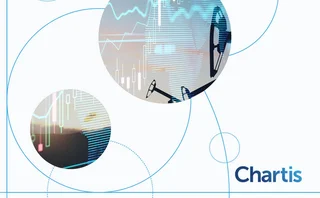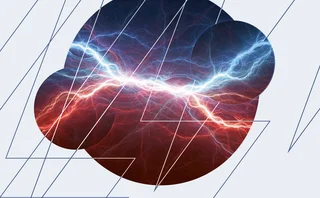
Natural gas/LNG house of the year: Engie
Energy Risk Awards 2020: Engie uses physical gas portfolio to manage the risks of continued expansion into illiquid European markets

Following the divestiture of its upstream liquefied natural gas (LNG) assets in July 2018, Engie has repositioned itself to use its midstream natural gas capabilities as a bridge to the transition to a low-carbon world.
“We contribute to gas supply and market liquidity on a global scale, firmly convinced of the role of natural gas in supporting the energy transition [during the] on-going coal phase-out and as a backup to [renewable energy] intermittency,” says Sebastien Delannoy, head of gas assets and developments for Europe at Engie.
In Europe, this strategy has played out via several projects from last year that aim to boost interconnections between the region’s markets, where Engie believes local production levels are falling, in spite of a need for gas to balance the intermittency of renewable energy sources.
“We are strongly invested in maintaining our import activity to meet European demand, [for] both LNG and pipeline gas,” Delannoy says. “Part of accomplishing these goals is to foster interconnectedness between European markets, something we are significantly contributing to in Central, Eastern and Southern Europe especially.”
Engie Romania, for example, currently holds a 40% share of local gas market activity. Engie’s Global Energy Management unit also established Engie Energy Management (EEM) Romania in 2018 to develop its midstream operations, risk management services, cross-border trading and offtake business in Romania. This has increased local gas volumes from 1.6 terrawatt hours (TWh) equivalent to 15TWh planned for 2022. EEM Romania works with seven counterparties at present, but expects this to rise to more than 20 by 2022 as a number of deals are finalised.
The Romanian business also serves as the organisation’s springboard into cross-border activities, including transit, arbitrage, storage and supply to other Eastern European countries such as Hungary and Bulgaria. “We are [positioned] in the region to gather market intelligence and to respond quickly to frequent market changes to capture opportunities and prevent risks,” says Delannoy.
In the latter, for example, a December 2019 deal with gas company Bulgargaz makes Engie one of the first organisations to work with the Bulgarian distributor, which previously sourced 100% of its gas from Gazprom. Engie’s 10-year offtake deal with the Midia Gas Development based offshore Romania will also start taking deliveries in 2021, further enabling the organisation to market gas to Romania, Greece, the Ukraine and Turkey.
Expanded activities in Greece last year include the first LNG delivery to the country’s Revithoussa terminal in July 2019 – the Q-Flex class LNG vessel, with a 216,000 cubic metre capacity, was the largest cargo received to date. Engie will use the gas to supply a major Greek power company as well as shipping volumes to Bulgaria and Romania, opening up a new “south route” for gas shipments for the latter, according to Delannoy.
Such deals place Engie in a stronger position to take advantage of gas price arbitrage opportunities in Europe between deliveries by pipeline versus ship. It can use its physical portfolio to hedge the market risk inherent in such deals, particularly in less liquid markets than those served by major benchmarks such as TTF (Dutch Title Transfer Facility) and NBP (UK National Balancing Point).
“[In southern and eastern European markets] there is no liquid derivatives market in which you can trade to hedge your position. So first we have to make sure we have some kind of physical alternative, and that’s why having a Romanian portfolio is helpful, because it can be used as a back-up or a stop-loss if we do not find a customer in Greece,” Delannoy says. Engie then builds a proxy portfolio to hedge its activity in the region, using liquid hubs such as TTF or VTP (Austria Virtual Trading Point) to shift outright risks into easier to manage spread risks.
Engie’s physical portfolio in its home country of France – which includes two LNG terminals – also provides short-term flexibility. “When we buy a cargo, we know it can go into the French portfolio at a predetermined market price, giving a floor to the value of the cargo and [enabling Engie] to further optimise its value in the LNG market,” Delannoy says. “Similarly, but to a lesser extent, our positions in Spain and Italy also provide such optionalities to back LNG positions.”
As such, Engie can assess the risk of a deal in a range of regions, building a strategy based on the ability of its wider physical portfolio to absorb any cargo. “That’s very important, because it provides an understanding of our risk, allowing us to enter into long or short positions,” Delannoy says. “We can develop a much more aggressive strategy, be creative and answer client needs because we have this backstop.”
Only users who have a paid subscription or are part of a corporate subscription are able to print or copy content.
To access these options, along with all other subscription benefits, please contact info@risk.net or view our subscription options here: http://subscriptions.risk.net/subscribe
You are currently unable to print this content. Please contact info@risk.net to find out more.
You are currently unable to copy this content. Please contact info@risk.net to find out more.
Copyright Infopro Digital Limited. All rights reserved.
As outlined in our terms and conditions, https://www.infopro-digital.com/terms-and-conditions/subscriptions/ (point 2.4), printing is limited to a single copy.
If you would like to purchase additional rights please email info@risk.net
Copyright Infopro Digital Limited. All rights reserved.
You may share this content using our article tools. As outlined in our terms and conditions, https://www.infopro-digital.com/terms-and-conditions/subscriptions/ (clause 2.4), an Authorised User may only make one copy of the materials for their own personal use. You must also comply with the restrictions in clause 2.5.
If you would like to purchase additional rights please email info@risk.net
More on Energy
ETRM systems 2024: market update and vendor landscape
This Chartis report evaluates energy trading and risk management systems that provide front-to-back, asset class-specific and geography-specific coverage, and considers the full energy trade lifecycle
CTRM systems 2024: market update and vendor landscape
A Chartis report on commodity trading and risk management systems that considers its different applications and addresses the market and vendor dynamics to determine the long-term and structural impacts of the overarching market evolution on the…
Energy Risk Commodity Rankings 2024: markets buffeted by geopolitics and economic woes
Winners of the 2024 Commodity Rankings steeled clients to navigate competing forces
Chartis Energy50
The latest iteration of Chartis’ Energy50 ranking
Energy trade surveillance solutions 2023: market and vendor landscape
The market for energy trading surveillance solutions, though small, is expanding as specialist vendors emerge, catering to diverse geographies and market specifics. These vendors, which originate from various sectors, contribute further to the market’s…
Achieving net zero with carbon offsets: best practices and what to avoid
A survey by Risk.net and ION Commodities found that firms are wary of using carbon offsets in their net-zero strategies. While this is understandable, given the reputational risk of many offset projects, it is likely to be extremely difficult and more…
Chartis Energy50 2023
The latest iteration of Chartis' Energy50 2023 ranking and report considers the key issues in today’s energy space, and assesses the vendors operating within it
ION Commodities: spotlight on risk management trends
Energy Risk Software Rankings and awards winner’s interview: ION Commodities







